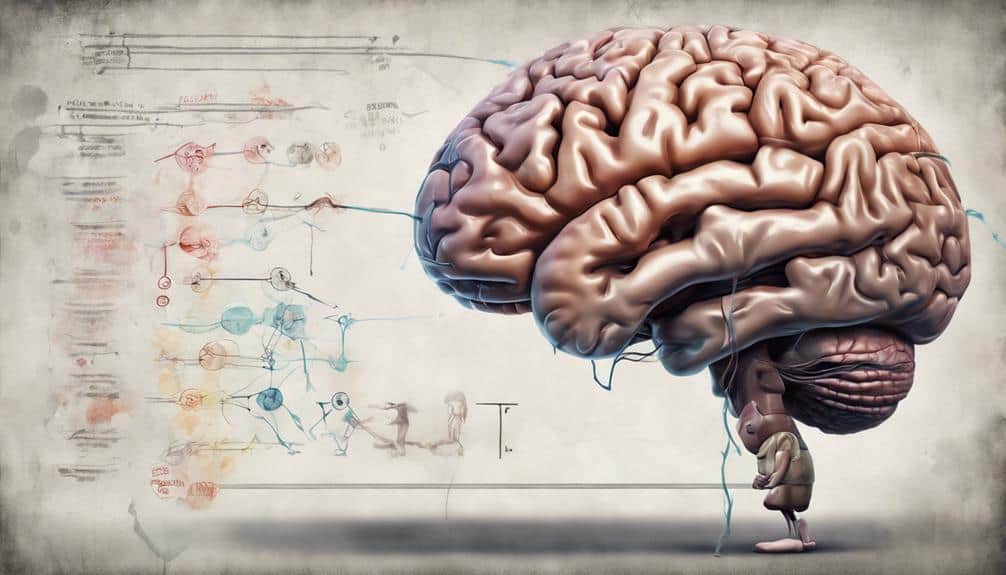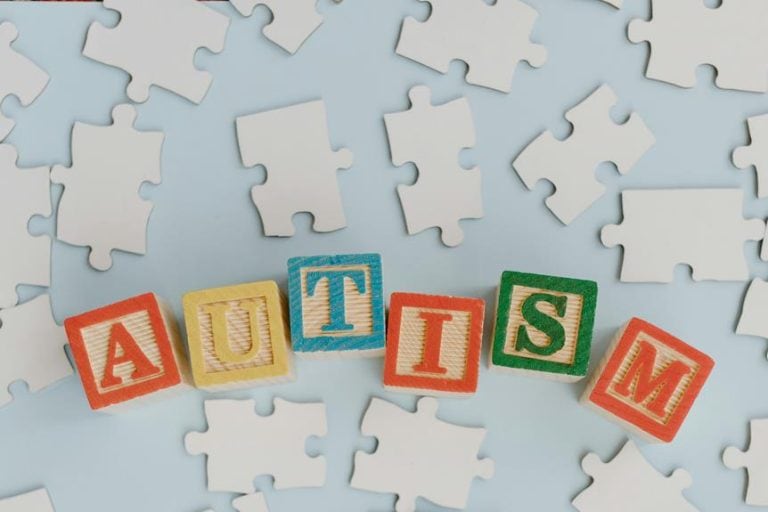Cerebellum Exercises for Adhd
As someone keen on optimizing cognitive function and managing ADHD symptoms, I've come to learn that cerebellum exercises can have a profound impact on enhancing attention and memory.
The potential benefits of engaging in targeted activities to stimulate the cerebellum are truly remarkable, offering a promising avenue for individuals seeking to improve their cognitive processes.
By exploring the connection between cerebellum exercises and ADHD management, one might uncover a valuable resource for enhancing cognitive functions and fostering overall well-being.
Key Takeaways
- Cerebellum exercises improve attention and learning in ADHD.
- Targeted training enhances impulse control and cognitive processes.
- Balancing tasks stimulate the cerebellum, benefiting ADHD symptoms.
- Strengthening cerebellar function leads to better ADHD management.
Understanding the Cerebellum-ADHD Connection

The cerebellum's intricate connection to ADHD manifests through its pivotal role in higher brain functions, especially attention and learning. In individuals with ADHD, the cerebellum can exhibit anomalies that impact cognitive processes. Cerebellar exercises, such as balance exercises and motor coordination tasks, are emerging as potential treatments for ADHD by stimulating the cerebellum and improving attention. These training approaches target the cerebellum's involvement in cognitive functions, offering a promising avenue for enhancing attention and impulse control in individuals with ADHD.
Research suggests that strengthening cerebellar functioning through targeted exercises can lead to improvements in ADHD symptoms. By engaging in specific cerebellar training techniques, individuals with ADHD may experience enhancements in attention and overall cognitive performance. Addressing the cerebellum through tailored exercises provides a unique pathway to supplement traditional ADHD treatments and potentially mitigate cognitive deficits associated with the disorder. As neuroimaging studies continue to highlight the link between cerebellar activity and ADHD symptoms, incorporating cerebellar exercises into treatment plans holds promise for optimizing cognitive outcomes in individuals with ADHD.
Effective Neurofeedback Training Techniques

Neurofeedback training, utilizing EEG to monitor brainwaves and enhance attention modulation in individuals with ADHD, has demonstrated efficacy in improving cognitive functions. This training method offers a promising therapeutic approach for ADHD by focusing on enhancing self-regulation and attention.
Studies have highlighted the positive impact of neurofeedback training on reducing impulsivity and increasing attention levels in individuals with ADHD. It provides a vital way to target cognitive processes and address specific challenges associated with ADHD.
Personalized approaches are important in neurofeedback training, as individual responses may vary, emphasizing the need for tailored interventions to optimize outcomes in ADHD management. By using neurofeedback techniques, individuals with ADHD can learn to modulate their brainwave frequencies effectively, leading to enhanced cognitive functions and improved attention regulation.
This personalized training approach holds great potential in the field of ADHD intervention and cognitive enhancement.
Engaging Cognitive Training Games

Engaging in cognitive training games offers individuals with ADHD a dynamic and interactive approach to enhancing specific cognitive skills such as attention, memory, and executive functions. These games target the ADHD brain by providing exercises that focus on improving working memory, attention span, impulse control, and emotional regulation.
Incorporating physical exercise into cognitive training games helps in promoting balance, both cerebellar and cognitive, leading to overall improvement in cognitive functions. The structured nature of these games fosters neural connectivity and enhances cognitive flexibility, ultimately boosting problem-solving abilities.
Research indicates that regular participation in cognitive training games can result in better academic performance and overall cognitive functioning in individuals with ADHD. By engaging in these games, individuals can exercise their brains in a stimulating and enjoyable manner, effectively addressing ADHD-related cognitive challenges.
Benefits of Mindful Meditation

Enhancing cognitive functions through mindful meditation has shown significant benefits for individuals with ADHD, improving attention, focus, and emotional regulation. Research indicates that regular mindfulness practice can lead to structural changes in the brain, which in turn enhance cognitive functions.
Mindful meditation is particularly effective in reducing stress, anxiety, and impulsivity, important challenges faced by individuals with ADHD. By incorporating mindfulness into daily routines, individuals can increase self-awareness and self-regulation, essential skills for managing ADHD symptoms effectively.
The practice of mindful meditation not only supports overall well-being but also contributes to cognitive improvements in individuals with ADHD. By cultivating mindfulness, individuals can develop a heightened sense of attention, improved focus, better emotional control, and a greater understanding of their own mental processes, all of which are vital for managing ADHD symptoms and enhancing quality of life.
Personalized Cerebellar Training Approaches

Tailoring interventions to address individual cognitive and functional impairments in ADHD, personalized cerebellar training approaches are essential for enhancing treatment effectiveness. When it comes to personalized cerebellar training for ADHD, it's important to take into account the specific deficits and needs of each individual. By customizing cerebellar exercises, significant improvements can be achieved in cognitive processes, attentional control, and overall cognitive functions.
Here are some key points to take into account:
- Individualized Interventions: Personalized cerebellar training techniques aim to address the unique cognitive impairments and deficits of each person with ADHD.
- Enhanced Attentional Control: By targeting significant deficits through personalized cerebellar exercises, attentional control can be improved, leading to better focus and concentration.
- Improved Cognitive Functions: Tailored cerebellar interventions have shown to result in significant improvements in various cognitive functions, providing individuals with better cognitive processing abilities.
Integrating Exercises Into Daily Routine

To effectively integrate cerebellum-stimulating exercises into your daily routine, consider incorporating activities that challenge your balance and motor coordination. Balance exercises like standing on one leg or using a wobble board can help improve cognitive functions and strengthen the cerebellum. Activities such as yoga, martial arts, or skateboarding can also be beneficial in enhancing balance and coordination, ultimately aiding in the improvement of ADHD symptoms.
Engaging in exercises like low plank holds or juggling can further enhance motor control and coordination, contributing to better cognitive abilities. Starting with simple balancing exercises and progressively increasing the difficulty level can help track progress and enhance cognitive functions over time.
Consistent practice of these exercises can lead to a strengthened cerebellum, resulting in improved attention, memory, and emotional regulation. According to research from Harvard Medical School, these targeted exercises can be particularly effective in managing ADHD symptoms.
Frequently Asked Questions
What Exercises Are Good for ADHD Cerebellum?
Yoga poses, dance moves, coordination drills, Pilates routines, sports activities, brain games, martial arts, Crossfit workouts, ballet exercises, and gymnastics routines are beneficial for ADHD management. Each activity enhances focus, coordination, and cognitive function.
How Do You Stimulate the Brain for Adhd?
To stimulate the brain for ADHD, I engage in mindfulness techniques, cognitive training, neurofeedback therapy, brain games, attention exercises, focus training, memory techniques, executive functioning practices, visual spatial skills exercises, and problem-solving strategies. These methods enhance cognitive functions effectively.
Does the Cerebellum Affect Adhd?
The cerebellum influences ADHD by affecting attention regulation, cognitive functioning, and executive processes. Its development and function impact neurological connections important for behavioral interventions and brain stimulation in neurodevelopmental disorders, showcasing its pivotal role in ADHD.
Can Balance Exercises Help Adhd?
Balance exercises, such as yoga poses, tai chi, and dance moves, can enhance cognitive functions and attention in individuals with ADHD. Incorporating these activities into a routine can improve focus and overall well-being.
Conclusion
To sum up, incorporating cerebellum exercises into your daily routine can have significant benefits for individuals with ADHD. By targeting this key brain region through activities like balance exercises and cognitive training games, you may experience improvements in attention, memory, and emotional regulation.
Stay consistent in your practice to reveal the full potential of your cerebellum and open a brighter future with enhanced cognitive function.







